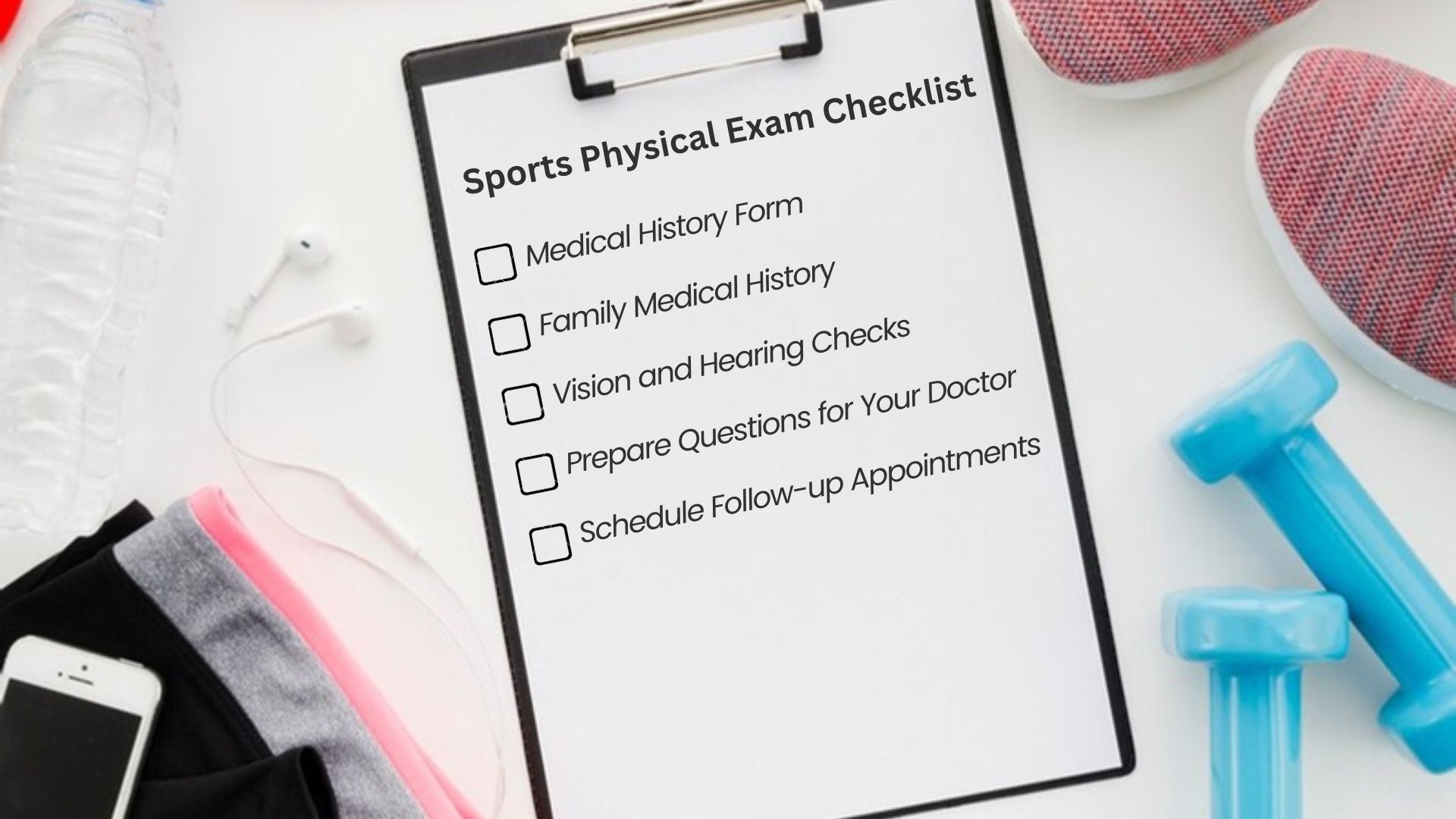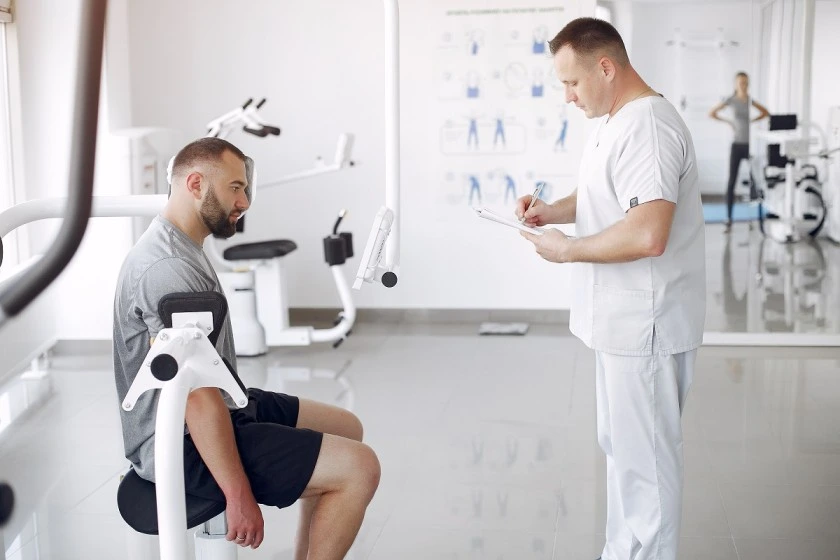Participating in sports is a great way to stay active, healthy, and have fun. However, ensuring your body is ready for physical challenges is crucial. A sports physical exam helps identify any potential health risks and confirms you’re fit to play. This blog provides a sports physical checklist to help you prepare for your sports physical exam and guides you through the process.
What is a Sports Physical Exam?
A sports physical exam, also known as a pre-participation physical examination (PPE), is a medical check-up performed before you engage in school sports or organized athletic activities. The primary objective is to evaluate your overall health, detect any underlying medical conditions, and ensure you’re safe to participate in sports.
The exam typically involves reviewing your medical history, performing a physical check, and occasionally ordering extra tests. It’s a great way to ensure that your body is ready for the physical demands of sports.
Why is a Sports Physical Examination Important?
Sports physicals are essential for preventing health risks such as heart conditions, asthma, or exacerbating previous injuries. They help doctors identify potential concerns that may affect your ability to play safely. A comprehensive sports physical can:
- Prevent health complications: Detect conditions that could pose risks during physical activities.
- Recommend safe participation: Suggest activities suited to your health status or provide preventive measures to minimize injury risk.
- Provide peace of mind: Ensure that you’re physically prepared for the sports you enjoy.
Sports Physical Exam Checklist

A Sports Physical Exam checklist is helpful to ensure your examination goes smoothly. Here’s what you need to prepare in your sports physical checklist:
- Medical History Form: Before your exam, you’ll need to complete a medical history form. This form asks about your past illnesses, surgeries, injuries, and any medical conditions you’ve experienced. Be thorough and honest, as this information helps the doctor assess your health accurately.
- Family Medical History: Your family’s health history is just as important. If any close family members have experienced heart problems, high blood pressure, or other significant health issues, mention this during your physical exam. Family history can reveal genetic risks that may affect your ability to play sports.
- Vision and Hearing Checks: The exam may include tests for your vision and hearing. If you wear glasses, contact lenses, or hearing aids, make sure to bring them to your appointment.
- Prepare Questions for Your Doctor: Write down any questions or concerns you have about your health or the sport you plan to play. Whether it’s about past injuries or how to prevent future ones, your doctor is there to provide guidance and support.
- Schedule Follow-up Appointments: If the doctor identifies any issues, such as a heart murmur or high blood pressure, you may need additional tests or visits to specialists. Be prepared to schedule follow-up appointments if necessary to address these concerns before your season begins.
Common Concerns During a Sports Physical Exam
It’s natural to feel a bit anxious before a sports physical exam, but there’s nothing to worry about. Here are some common concerns and how to address them:
- Nervousness: Feeling nervous is normal, but remember that the exam is for your benefit. The doctor’s goal is to ensure you’re healthy and ready to play.
- Sensitive Topics: If you have private health concerns, don’t hesitate to ask the doctor for a one-on-one conversation. They are there to help, not judge.
- Not Passing the Exam: If an issue arises that may prevent you from playing sports, the doctor will suggest ways to manage it or recommend safer activities.
Sports Physical Exam Made Easy: Your Essential Checklist
Preparing for a sports physical exam is crucial to ensure you’re ready for peak performance. A well-organized checklist helps streamline the process, covering medical history, prior injuries, and required vaccinations. At Concur Urgent Care, skilled professionals conduct comprehensive assessments, checking vitals, flexibility, and overall fitness to detect potential health concerns. Remember to bring necessary documents, wear comfortable clothing, and discuss any medical issues with your provider. Proper preparation ensures you meet all health requirements and stay safe while excelling in your sport.

FAQs About Sports Physical Exams
1. How often do I need a sports physical exam?
Ans: Most people need a sports physical exam once a year or at the start of a new sports season. This helps ensure there haven’t been any changes in your health that could affect your ability to play.
2. What is included in a physical exam?
Ans: The exam typically includes checking your general appearance, vital signs (such as heart rate and blood pressure), and a head-to-toe physical assessment, including your heart, lungs, and more.
3. What are the four basic physical examination techniques?
Ans: The four main techniques are inspection (looking), palpation (feeling), percussion (tapping), and auscultation (listening with a stethoscope). These techniques help the doctor assess your body and detect any abnormalities.
4. Is a sports physical exam available at a walk-in clinic?
Ans: Yes, many walk-in clinics, including Concur Urgent Care, offer sports physical exams. This is a convenient option if you need an exam quickly or don’t have a regular doctor.
5. Where can I get a Sports Physical ASAP?
Ans: You can get a sports physical ASAP at Concur Urgent Care. Visit our clinics at 11305 Bell Rd #105, Johns Creek, GA 30097, or 5395 Jimmy Carter Blvd Ste 500, Norcross, GA 30093. Walk-ins are welcome for quick and reliable service!
About Us
Concur Urgent Care in Johns Creek provides comprehensive and accessible care for all your medical needs, including sports physical exams & DOT Physical Exam. Our experienced medical team is dedicated to helping you prepare for the sports season quickly and efficiently. Visit us today to get your sports physical exam done and stay in the game!

